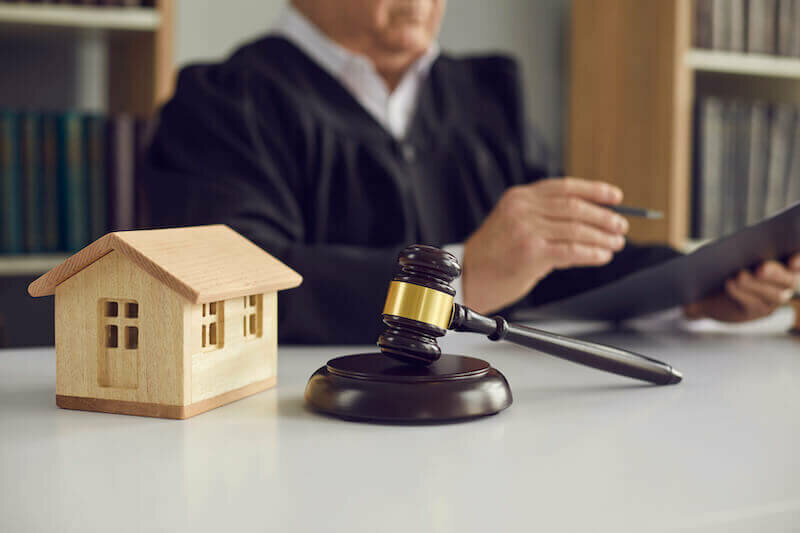If you are a resident or nonresident of South Carolina and earn income from a South Carolina source, you must pay taxes to the state. The income tax rates in the state range from 0% to 7%, while the sales tax rate is 6%.
South Carolina provides tax breaks and credits to help you decrease your tax burdens, such as an exemption for some earned income tax credits, retirement income, and a credit to cover nursing costs.
Comprehending the rates is critical, since property taxes affect your monthly cost of housing or the amount you must set aside each year. A hefty property tax payment might add thousands to your overall real estate expenditures over time. Here’s a complete guide to property taxes in South Carolina for 2022, and you’ll also get to learn everything about the property tax exemptions.

Property Taxes in Fort Mill, South Carolina
Fort Mill is a town in York County, South Carolina. In 2019, the town’s corporate borders housed roughly 22,284 people.
In York County, South Carolina, the median property tax is $1,016 per year for a dwelling with a median value of $158,900. York County gets 0.64% of an estate’s assessed fair market value in property tax on average. In terms of the median amount of property taxes collected, South Carolina is ranked 1458th out of 3143 counties in the United States.
In York County, residents pay around 1.55% of their annual wage in property taxes. In terms of property taxes as a proportion of median income, York County ranks 1965th out of 3143 counties.
Municipalities establish property tax rates depending on the operations that must be funded and the expense of providing those services.
Property owners must apply to the county assessor’s office for the main home rate and produce paperwork proving that the residence is the owner’s lawful principal residence.
When York County is compared to other counties in South Carolina, Beaufort County has the highest property taxes, collecting an average of $1,319.00 (0.45%of the median home value) in property taxes per year. At the same time, Chesterfield County has the state’s lowest property tax, with an average annual rate of $293.00 (0.38% of the median house value). Richland County has a median house value of $183,704, while Charleston County has a median home value of $352,798.
In South Carolina, homeowners pay additional property taxes depending on the assessed value of a property and the local tax rate. The assessed value is a proportion of the market value. The proportion, known as an assessment ratio, varies according to the type of property. The assessment ratio for owner-occupied main dwellings is 4%. The rate for non-primary dwellings is 6%.
Every five years, local assessors are obligated to reassess all property in their jurisdiction. The goal of this re-evaluation is to identify the entire market value, which is then applied to the assessment rate. Gains in market value as assessed by this reassessment are limited to 15%. When a property is transferred or when alterations or improvements are made to the residence, the cap is lifted.
Local governments in South Carolina administer and collect property taxes with support from the state’s Department of Revenue. The state and municipal governments gather $42.9 billion in total yearly income, with property taxes accounting for $6 billion, or 14.1% of total revenue. Low real estate tax rates are found in states where real estate taxes account for a smaller proportion of overall income received. South Carolina houses are valued at an average of $185,189.
The average property tax bill in South Carolina is 0.56% of the house value or $5.59 for every $1,000 of property value. As a result, property tax in Fort Mill, SC are among the lowest in the country.
Local taxing jurisdictions in South Carolina establish property tax rates by dividing their budget requirements for the year by the total assessed values of the premises within their jurisdiction. The rates are expressed in mills. A mill equals $1 of tax for each and every $1,000 of appraised value. The charges, however, might differ from county to county.
The York County Personal Property Tax funds local education systems, infrastructure, public transportation, and other government programs. Property tax revenue is usually spent on local projects rather than going to the state or federal budgets.
The York County Property Tax, unlike other taxes that are confined to individuals, is imposed directly on the property. Unpaid property taxes can result in a property tax lien, which stays connected to the property’s title and is the current owner’s duty. Selling or transferring the property, or perhaps even filing for bankruptcy, has no effect on tax liens. Delinquent taxes can result in extra interest and fees, which are also recorded on the property title.
In extreme circumstances of property tax default, the York County Tax Board may take possession of the property and sell it at a public tax foreclosure auction, sometimes at a price substantially below market value. The profits of the sale are used to pay off the property’s tax lien first, and any remaining funds may be returned to the original proprietor.
South Carolina Property Tax Exemptions
Only municipal governments in South Carolina have the authority to collect real property taxes. The property tax burden of a business is determined by the following formula: Property Value x Assessment Ratio x Millage.
Real property is evaluated to establish Fair Market Value, whereas tangible personal property is recorded at cost and subsequently depreciated using an income tax depreciation (for other businesses) and a statutory depreciation rate (for manufacturers). The fair market value is then calculated using the rates specified in the South Carolina Constitution.
Property taxes are calculated by applying the local millage rate to the assessed value. South Carolina millage rates are site-specific and determined annually by the local government. A mill equals $0.001.
Act 388 gives substantial property tax relief to owners of owner-occupied properties. The School Property Tax Exemption for All Homeowners exempts owner-occupied properties from school-related property taxes. South Carolina does not have a circuit breaker program that allows for specific property tax reduction.
South Carolina has a variety of property tax exemptions for strategic economic purposes, including tax increment financing. State law allows businesses to apply for a five-year exemption from county government property tax levies (excluding school operating taxes) if they invest at least $50,000 in manufacturing facilities, R&D facilities, corporate headquarters with at least 75 new jobs, or distribution facilities (South Carolina, Department of Commerce, Summary of General Incentives).
In addition to appealing your home’s assessment value, South Carolina offers tax exemptions to qualifying homeowners. Homestead and senior exemptions are the most common. Exemptions can lower your property tax bill, but they do not affect tax rates. In addition, qualifying homeowners must still pay their South Carolina property taxes on time.
Homestead Exemptions
South Carolina provides a property tax exemption for homeowners. If you’re permanently and totally handicapped, legally blind, 65 or older, and have lived in your SC house for the entire calendar year, you might qualify for a homestead exemption worth $50,000.
This means that if you’re eligible and your home is worth $100,000, subtract $50,000 from the price. The remainder of $50,000 in value will be charged to you. The homestead exemption rebate remains in effect for all other taxes with the exception of school operating taxes, which are already excluded in the case of primary residences.
To be eligible for this exemption, you must normally apply at your county auditor’s office by July 15 of the year in which it is to be claimed for the first time. If you are unable to do it personally, you may allow someone to do so on your behalf. Proof of age, such as a Medicaid card, birth certificate, driver’s license, or Medicare card, is required.

Property Tax Exemptions for Seniors and Disabled People
The senior exemption exempts South Carolina property taxes on the first $50,000 of the house value. Eligible homeowners should be at least 65 years old and earn a specified amount of money. Only one of the residents who collectively own a house must be 65 years old. Furthermore, the residence must be their primary dwelling.
Property Tax Exemption for Disabled Veterans
Additional tax exemptions in SC include the exemption for injured veterans. This exemption provides their surviving spouse or a handicapped veteran with a complete exemption from property taxes. To be eligible, the veteran’s handicap must be entirely military-related. Totally handicapped veterans are excused from paying property taxes in SC. The exemption is transferable if the veteran purchases a new primary dwelling. If the veteran is 50% to 60% handicapped, they are eligible for a $10,000 property tax exemption.
Endnote
South Carolina offers a variety of services to assist you in estimating residential property taxes. Your competent realtor can be a perfect guide for recommending who to consult in the location where you are looking for a house. They may also know about any special tax districts or school district millage rates in the neighborhoods you’re interested in buying in.
Local county tax assessors are also quite useful. Some counties feature an online tool that allows you to search for a certain location and learn about its real estate tax rates. We also suggest reviewing data from the South Carolina Department of Revenue and consulting county tax assessors.
If you need to sell your house and you’re wondering, “Who will buy my house in Fort Mill?” Tiffany Property Investments is among the best companies that buy houses in South Carolina. Additionally, we buy homes in Rock Hill owners are selling with zero commissions and in any condition. Why not give us a call today?
